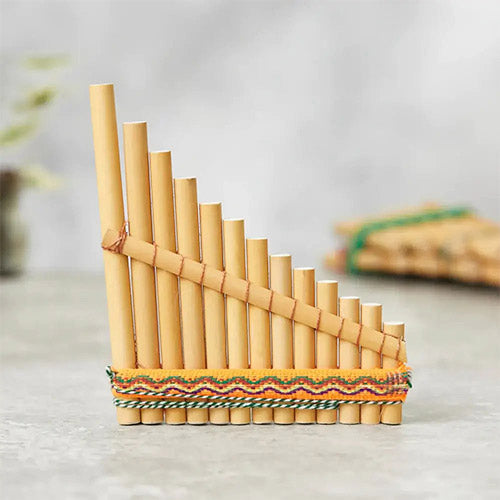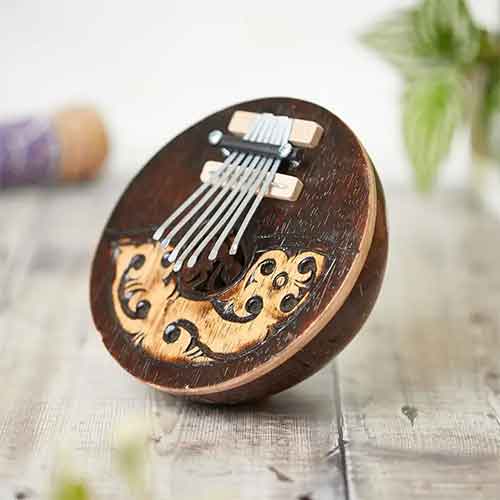Having a child is a wonderful experience, but can sometimes be extremely challenging. We are all entitled to a break after all but what are your options? The best option, in my opinion, is to get a family member to look after your little one, this is because nan’s, granddad’s uncles and aunties will most probably like to spend more time to bond with your child.
It is a grandparents delight to have their grandchild around them, it keeps them feeling young. They may also do things with your child that you might have not wanted to do such as playgroups. Grandparents have lots of free time on their hands. It gives them a sense of being needed and wanted and who doesn’t want that? Don’t be afraid to ask for help and don’t feel bad about it either. If you want space, your baby probably wants some space from you too.
A break can clear the air and calm down the overall stress of responsibility. If you do not have a close family or they are unable to have them for any reason, let’s explore the other choice
What childcare options are available?
– Childminder
A childminder is another great option, they will pick up your child from your house, or school depending on your requirements, they will make them meals, take them to groups/activities, care for them from their own home, costs vary between each professional and other factors.
Babysitter
If you are looking for just a night off, it might be worth finding yourself a trusted babysitter, to be there for your little ones at night time so that you can have a date night, meet up with some friends, or just do something for yourself in the day. Babysitters are great, they don’t charge too much that it breaks the bank, they are usually available as and when you need them (depending on the sitter) and they normally are qualified from college, school and are just looking for some more experience with little ones plus the extra cash doesn’t go amiss. This type is usually affordable but lacks responsibility management.
Nanny
A nanny is someone who can live at your home to help take care of the children. They do duties such as cleaning, cooking, school runs, homework helper, they can do many jobs that will make your life a lot easier. However, come at a cost. The most effective childcare comes from nurseries. Which if you fit the low-income bracket it is usually FREE when they are 2. This will provide you with 15 hours to yourself on days that suit you depending on availability.
You can find most of these services listed through trusted agencies online who have necessary DBS checks and professional experience. Make sure you meet with the person before inviting them into your home and do not straight away trust them with your child. Some people may not be who they really are. You should never leave your children with a stranger or someone that you do not trust.
Nursery
There are many benefits to sending your child to nursery and they can attend as young as a few weeks old. However there will be fees which varies from nursery to nursery.
The benefits of nursery
It’s got to that time and you have to decide whether or not to go back to work or spend the next few years with the dribble, teething toys, and poop. It is not uncommon for mums to leave work to take of their child, whilst living off their partner’s income or some type of benefit.
Others choose to get their little one into a nice school, have a family member, or childminder to watch them whilst they work. In my opinion, working from home with my partner is the best job. If for whatever reason one of my children couldn’t go to school I’m only around the corner. Most parents don’t get the choice of working from home. They either have to sacrifice their job or they take the plunge and get their baby into childcare.
My two children have both been at school since the age of 2. It is funded for working and non-working parents for 15 hours of free childcare. This really makes all the difference! Even if you’re not going to work while your little one is at nursery. It’s a good time to catch up on your time. If you want your child there for longer than 15 hours you can pay a little extra and have them there for more days.
Even though children love their mum’s and dad’s, they need communication and interaction with other people to learn things in life like social skills. Nursery makes you appreciate them more and they adore you more because they haven’t seen you for a couple of hours! I love the smile on my children’s faces when I pick them up, it’s refreshing, you can ask them what they got up to, you will get school/nursery reports about how they’re getting on it’s very beneficial.
What age can my child go to nursery?
You can have your child at nursery from as young as a few weeks old, but in my opinion, at the age of 2 is the prime age for learning to communicate with others, they play with sensory, they’re active, learn role play and most of all they make possible friends for life!
The Importance of nursery
It gets them ready for school, for when they are around four years old. They will be at school every day at 8.45 till 3.15 depending on your local school. School, in my opinion, is a very important part of life, education, meeting new people. It gets your young one ready for real-life situations such as counting, writing, performing. All these things your children learn at school will make an impact on the rest of their lives, so why not let go and give them the best start?
Enjoy every moment with them and remember not to be selfish, let them see the world for themselves. Don’t be scared, you will always be their parent! Plus the teachers will do loads of activities to develop your child such as learning colours, numbers, nursery rhymes, reading books, writing, etc.
Preparing Your Child For Primary School
This is an exciting time for every parent, my child goes to nursery and does two and a half days per week. Whilst I love being a dad and tackling all the challenges that come my way. I do work from home and need more time to work in peace without constant distractions.
Before going to reception full time your child should be able to independently wipe themselves after going to the toilet, be sociable with other children, wash there hands properly, and successfully use a knife and fork to cut their food and feed themselves.
It’s likely that you will have a home visit so that your child will get to meet their new teacher. You may be offered a taster stay and play session. These usually start before September and are not obligatory. However, you should definitely take the opportunity for your child to meet their new teacher.
As they will also be in their new class, with new children. This will help them not be so nervous or worried about starting with the new environment. This can be an exciting time to find out what your little one will be learning, what new toys they will be playing with to teach them, and what kinds of food your child will be eating.
You should try to make the thought of going to school fun for them, try to be very positive about it so that they can enjoy the process. As opposed to worrying about being away from home. In the meantime, the nursery will be helping them to write their own name.
If your child does not go to a nursery then you should start teaching them the letters so that they can start writing their name. A good practice is if you write it once and get them to copy it repeatedly. When my daughter wrote her own name on her own for the first time she was so proud of herself. She would then take every opportunity she could to get a piece of paper and a pen to practice.
Preparing yourself

Your child going to a big school can be scary for adults, where has all that time gone? The years have flown past and now they’re going to be at school full time. You are likely full of different emotions. You may be feeling worried about them, nervous about them making friends, not being at home during the week anymore. In general, it is a new experience for both you as a parent and your child.
You have to do new things such as getting them their first school uniform. You will also need to decide whether your child will be eating packed lunch or hot school meals. I want you to know that with your child at school full time, this will give you more time for yourself so that you can go back to work or work from home. You could find a new hobby or even take some time out, and think about yourself for a little while.
The build-up to your child going to full-time primary school can be overwhelming for you as a parent and your child. It is possible that both of you may be experiencing mixed feelings. Eventually, you will both get used to the new change of your child being at school full time. You will have more time for yourself, and maybe enjoying the extra time, but after the whole preparation before they go. You will need to go through the settling-in phase.
Settling into full time school

The difficult part of this is adjusting from taking your child to nursery two and a half days per week to taking them full time. Having to wake up early each morning to get them to school on time, and having to pick them up after school every day. This can be quite full-on at first. It can make you feel really tired as you slowly adjust to this new routine.
For your child, they may start enjoying school less, and wonder when they will be able to not wake up early for school. They will long for the days when they can just relax at home. My daughter on her first week kept mentioning that she wants to stay at home. In the morning when we got to school she was a little tearful, not wanting mummy or daddy to go.
In this time your children will need extra love and support to help make the transition as smooth as possible. As they are at school all week, I would highly recommend making the weekends a time for fun. Take them out and experience some new things together or if they would like to relax let them do it. After all, learning can be extremely tiring for your little ones.

Now they will start learning more advanced things such as addition, subtraction and writing letters. Maths when introduced can be very difficult for your little one, but luckily there are simple ways to develop kids maths skills.
The basis for a child to start learning numeracy skills usually starts by using their fingers to count. After they get to 10 successfully and run out of fingers. This is when you will need to bring in some new activities to help develop them further. After all, maths is one of the most important subjects that they will use in adulthood in regards to dealing with their finances, whilst they will learn a lot from school developing these skills at a younger age could pose many development benefits. A great way for kids over three years old to develop simple addition would be to use tagua counting pieces.

Math link cubes are wonderful for kids; they help teach them how to count. As they slowly connect each cube together. If you don’t have these cubes don’t worry and don’t feel like you have to go out and buy some because realistically you could use anything to count as long as they are small enough to handle.
You could even count toys, teddies, books or other household items. Other alternatives to math link cubes would be Lego. These eco-friendly pieces are fantastic for teaching your child to count, they are colourful which makes them even more attractive to work with. As long as your child is over the age of three and is unlikely to put them in their mouth they are suitable and one 250 g bag is plenty.
Counting board games

There are a few options here that could be very beneficial such as ‘Count your chickens or Bus stop board game’. The objective of the bus board game is that each player has their own buses and each square on the board is marked with either a plus sign or a minus symbol. Whichever you land on, you will have to spin the spinner to find out how many people you need to add or take away from your bus.
This type of game is good because it gives them constant practice in regards to basic maths and will allow them to understand it more clearly over time whilst also having fun! This type of game is suitable for ages 4-8 at those key development stages. After they have mastered counting smaller numbers you could introduce money, and teach them how to add coins up together.
Discovering Shapes
Shapes are a large part of maths and knowing what shape something is can be important in all areas of life. As everything is usually a different size and shape you could walk around your home asking your child what certain shapes your everyday items are and correct them when they are wrong. After some time practising they will start to learn and develop a great understanding and will have the knowledge to describe things more clearly. For younger ones, you could start with the basics (Circle, triangle, square and rectangle.) As they become more advanced you could start to add other types of geometric shapes such as the hexagon, octagon, cylinder, isosceles triangle, right-angled triangle, semi-circle, and more.
Introducing algebra
When introducing basic algebra, you should that your child has an understanding of addition and subtraction. Whilst this is a topic that they will learn during their older years, introducing it at a younger age would be very beneficial to their core learning and will help them become more advanced. The best way to do this would be to use a whiteboard and start writing small sums for example 2 + x = 10 (x = ?)
When referring to x you could use the word (something) once they understand that x is the problem, they will then be able to solve these types of problems and whilst many argue that algebra is not needed in adult life, it definitely is in many ways that we do not realise. If I know that I and my friend have £30 together and that I have £12, how much does my friend have? The sum would be written: £12 + x = £30. (x = £18). Learning maths does not have to be difficult, many children would agree that it can be fun. It is all about the way that you teach it.
Another thing that they will likely have to adjust to is the fact that a lot of their friends from the nursery may end up going to a different school. If they were close friends this will be especially tough. However, it is a great new opportunity to make some new friends and bond with a new teacher. This will also help build upon your child’s social skills and development.

A great idea to encourage your child to enjoy the settling-in phase would be to introduce a star chart system whereby they can receive a star per day that they go to school. At the end of the week when they have five stars, they get the reward stated. When they finish school, you should ask them about their day. They may have a lot to unload or may have nothing to say. Either response is alright, they will talk about it in their own time.
Up next: Are teaching assistants important?









